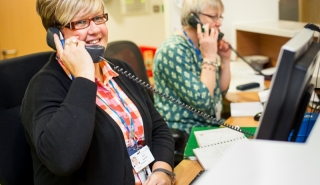Laboratory Medicine
Test Directory / Paraneoplastic Antibodies Also known as: Cereberal or Neuronal Antibodies
Paraneoplastic Antibodies Also known as: Cereberal or Neuronal Antibodies
Brown clotted serum, gel barrier
| Test | Paraneoplastic Antibodies Also known as: Cereberal or Neuronal Antibodies |
|---|---|
| Common Abbreviations | APUR |
| Profile | Includes antibodies to Hu, Yo, and Ri. Ma1, Ma2, CV2, amphyphysin, Sox1, Tr, PCA2, Zic4 and Gephyrin by prior arrangement. |
| Clinical Indication | Paraneoplastic disorders are characterized by the presence of neuronal autoantibodies in patient serum. The detection of these autoantibodies is useful for the clinician, as it suggests the presence of an underlying tumour. Tumours that have been known to initiate paraneoplastic disorders include small cell lung carcinoma (SCLC), thymoma, neuroblastoma, and breast, ovarian, and testicular cancers. |
| Specimen Type | Blood |
| Sample Type | Serum (CSF not required but can be tested) |
| Minimum Volume | 1 mL |
| Special Precautions | No special requirements |
| Stability | Contact Referral Laboratory |
| Turnaround Time | 3 weeks |
| Laboratory | Immunology Laboratory, Oxford University Hospitals NHSFT |
| Reference Interval | Contact Referral Laboratory |
| Limitations | Contact Referral Laboratory |






